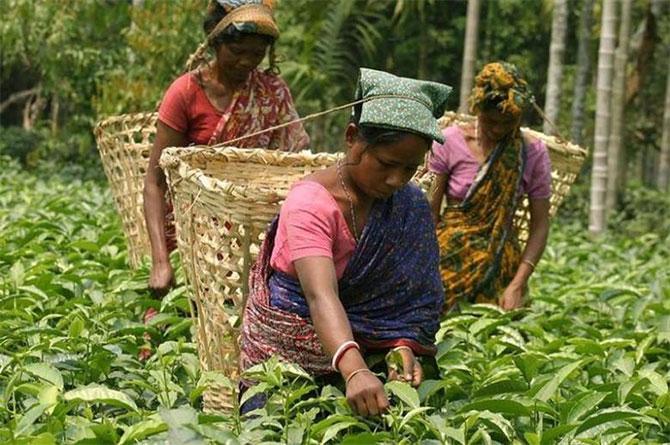However, strong rupee, concerns over production at home may spoil the party

With Kenyan tea prices shooting up by 25 per cent to $2.92 a kg in last month’s auction, the Indian tea industry can look ahead to increase its exports with a competitive edge, offering tea at an average price of $1.8 a kg. However, a rising rupee and concerns over production might act as a spoilsport.
According to data from tea trading firm Van Rees, Kenyan prices opened at $2.59 a kg in the beginning of this year’s auctions and surged 21 per cent to touch $3.12 by the fifth week, on account of a shortage in production.
On the other hand, Indian tea opened at $2.32 a kg but fell sharply by 11 per cent to $2.06 in the fifth week (the first week of February). Sixth week onwards, both Kenyan and Indian tea prices have been declining. However, the Kenyan prices remain higher than the opening price of $2.79 a kg.
“Prices in the Kenyan auction are unlikely to go down below $2 a kg which, theoretically, should boost Indian exports,” Ajay Kichlu, director at Chamong Tee Exports said.
Indian tea companies have projected a low production volume in Kenya which is expected to keep their auction prices up. In case Indian tea production remains buoyant this year, it will be able to expand its reach into the hitherto Kenyan export markets, such as Russia, the UAE, the UK, the US, and Egypt.
Azam Monem, chairman of Indian Tea Association, said some Indian exporters and producers have been receiving enquiries from the Kenyan companies’ clients for this year’s procurement.
“However, it is too early to clearly state if India stands to gain from the crop shortage in Kenya. There will be more clarity after the second flush (June-September harvest) starts selling in the market,” he said.
In January this year, Kenyan tea production decreased by 34 per cent to 32,990 kg, compared to 50,308 kg in January last year. In India, however, the production rose by six per cent to 18,990 a kg.
However, concerns remain over India’s own production and the prevalent auction prices.
A N Singh, managing director at Goodricke Group, said the first flush harvest had been badly hit in north India as production dipped between 30-40 per cent due to excessive rainfall.
In case there is a shortage in domestic production, India may not be able to convert the export opportunity effectively as the domestic demand will have to be first catered to.
“A lot depends on the production volume in India and how Indian tea prices react in the second flush,” he said.
Another concern for the industry is the appreciation of the rupee against the US dollar. Although the Indian government may seem happy as it signals improvement in the country’s economic health, tea exporters stand to lose in net earning while converting the US dollar into the rupee.
“If the rupee continues to remain strong throughout the July-September period, then the exporters may not actually gain much after currency conversion,” Monem said.
In recent times, tea producers and exporters have been pushing for increasing exports from the country to touch 250 million kg (mkg) from the usual 200 mkg, which they hope will strengthen the earning and profitability of the sector. Against a usual $2.2 a kg in the auctions, Indian tea sells between $2.9 and 3.1 a kg in exports.
Last year, India exported 206.89 mkg of tea which had fetched a forex earning of $628.97 million. In the first two months of the current year, the tea industry exported around 40 mkg of tea, earning $114.68 million in forex income.
Photograph: Rupak De Choudhuri/Reuters








